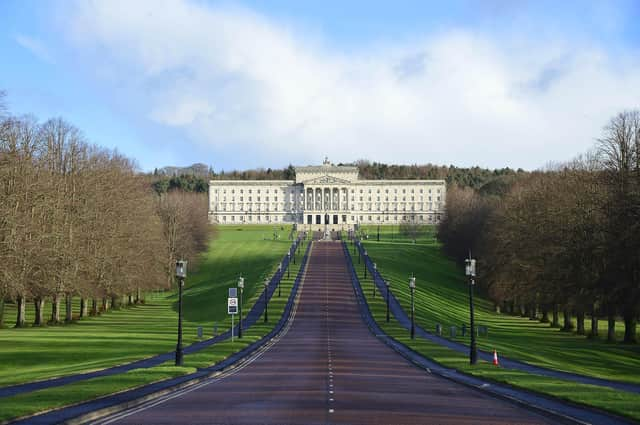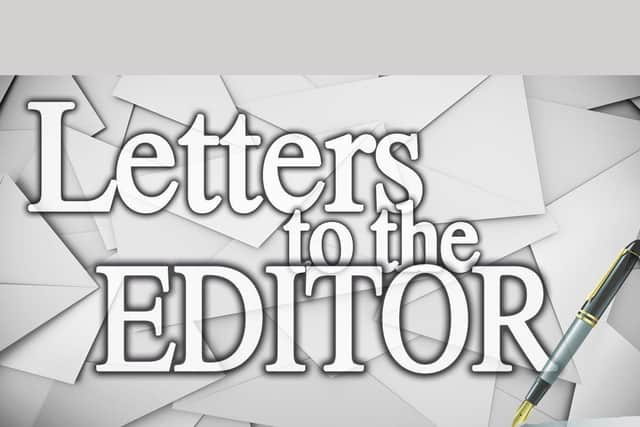Letter: The are upsides and downsides to Northern Ireland rates rise but executive is adopting a risky strategy on funding


The speculation was correct – the executive did indeed decide on Thursday to opt for a 4% rise in the Regional Rate in 2024-25, one equal to current inflation.
Many, notably the executive itself, will hail this as a victory for common sense, for devolution and for containing household cost of living pressures.
Advertisement
Hide AdAdvertisement
Hide AdAs is often the case, any initial upbeat assessment may not survive consideration of the longer run consequences, the downsides and the considerable risks associated with the strategy which the executive is adopting.


Obviously, a lower percentage rates rise means Stormont raises less revenues on its own behalf. Hence, a smaller contribution is made to plugging any gaps in Stormont’s finances. And we know there are many such fiscal holes.
It is certainly true that legislative and consultative requirements imply that many options around revenue raising cannot happen immediately: notably any reduction in the considerable number of reliefs applied to rates both domestic and commercial and introducing domestic water charges.
However, it is striking that so far the executive has combined a refusal to consider much by way of revenue raising for the immediate future or, indeed, for the long run.
Advertisement
Hide AdAdvertisement
Hide AdIt is hard to explain a Stormont (regional) rates rise of “only” 4% when set alongside much higher increases which the same political parties have agreed at the council level.
Now, it could be that the executive is playing hard ball relative to the UK government. So, they are adopting a tough stance now to see what more they might get (over and above the £3.3bn package).
There are a number of downsides to such an approach. Households might feel a bit aggrieved if in a few years time the executive suddenly does change its tune and implements some measure of revenue raising because the local politicians have made no attempt to shape expectations.
Equally, playing hard ball with the UK Treasury is a risky game. If the Treasury is indeed firm in its stance that £3.3bn is as good as we’ll get then the executive is simply annoying the hand that feeds it and in the long run there could be more negative consequences.
Advertisement
Hide AdAdvertisement
Hide AdIn particular, the £3.3bn package makes the write-off of the executive’s “debt” (that is, its accumulated overspends probably amounting to more than £500m) conditional on Stormont raising revenue by £113m in 2024-25 but a 4% Regional Rate rise is far short of that.
Paying over £100m of extra rates now has negative social consequences, but so would losing £500m or so of funding in a few years’ time.
The executive must be hoping the Treasury blinks first but this is a high stakes game of fiscal poker.
Comparisons for 2020-21 show that taking “regional taxation” per household, i.e. the combination of rates and any charging for water, the total in England, Scotland and Wales was in the range £600-900 higher than in Northern Ireland.
Advertisement
Hide AdAdvertisement
Hide AdComparisons like that make it harder for the executive to credibly argue for a combination of a relatively low rates increase plus more cash from the UK government.
Of course, achieving a more sustainable basis for Stormont’s funding is a long term task but the challenge is so considerable that the executive needs to provide evidence that even at this stage it is setting out on that road and the evidence so far is not obvious that they are doing so.
At the various points over the last 15 or so years, NI executives have, rather in the manner of Charles Dickens’ Mr Micawber, been saved from making the real tough financial decisions because something “turned up”- usually that there was a burst of public spending in GB which then carried over to Northern Ireland.
Whatever the outcome of this year’s General Election it is much less likely that something is going to turn up.
Advertisement
Hide AdAdvertisement
Hide AdAs one French politician once said, “to govern is to choose”, and at some point this executive will have to make very tough choices if they wish to really govern.
Dr Esmond Birnie, Senior economist, Ulster University Business School